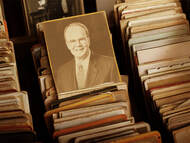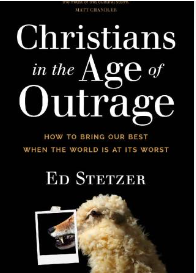James 1
|
James 1:1:
James, a slave of God and of the Lord Jesus Christ, To the twelve tribes scattered among the nations: Greetings. |
James does not identify himself as a leader of the church or brother of Christ, but rather as a servant of God and Jesus Christ. He is writing with a true Christian perspective of leadership. (See 20:26). His reference to the twelve tribes appears to be a symbolic description of the scattered people of the New Covenant as opposed to the twelve tribes of Israel of the first covenant. |
At the very beginning of his letter James describes himself by the title wherein lies his only honor and his only glory, the slave of God and of the Lord Jesus Christ . With the exception of Jude he is the only New Testament writer to describe himself by that term (doulos) without any qualification. Paul describes himself as the slave of Jesus Christ and his apostle (Romans 1:1; Philippians 1:1). But James will go no further than to call himself the slave of God and of the Lord Jesus Christ.
 Andy Davis
Andy Davis
“Consider it pure joy, my brothers, whenever you face trials of many kinds, because you know that the testing of your faith develops perseverance. Perseverance must finish its work so that you may be mature and complete, not lacking anything." (James 1:2-4)
Christians are to count it pure joy whenever we suffer trials of any kind at all. Nothing can touch a child of God apart from the direct and selective will of God. There truly is a “hedge of protection” around every child of God. So, if a particular sorrow comes into our lives, it is for a specific purpose. The trial is a skillful stroke by a master sculptor using his hammer and chisel on our souls. Yes, it’s supremely painful. But every stroke has a purpose. According to James it is to develop vital character traits in us. It begins with the testing of our faith. The concept of “testing of our faith” is of two aspects: 1) to prove that it is real… not temporary faith, like the stony ground hearer, or demon faith or dead faith (as James discusses in the next chapter of his epistle); 2) to purify it as gold is refined by fire (as Peter tells us in 1 Peter 1:7). The testing of our faith, once it is proved genuine and refined enables us to know with greater and greater certainty that God truly is working salvation in us. We really are children of God, our sins really are forgiven, we really are going to heaven when we die. This subsequently develops perseverance in us. The opposite of perseverance is giving up… quitting. The stony ground hearer… his faith dies whenever persecution and trial comes because of the word. But this person is more convinced than every before of his genuine status as redeemed. So, in Romans 5:5 our proven character becomes the ground of our stronger hope… a greater confidence that heaven is our destiny. This results in a powerful perseverance, because he knows that God’s work in his soul is not in vain.
James then says perseverance must finish its work in us so that we will be “mature and complete, not lacking anything.” Turning that around, James is implying that without trials we will be immature, incomplete, lacking significant aspects of sanctification. Therefore, according to James, suffering is indispensable to Christian maturity. No one grows by painless pleasure. We grow by suffering the chisel strokes of the master craftsman.
--Andy Davis; Two Journeys; How Suffering Works Maturity 8/29/23
Christians are to count it pure joy whenever we suffer trials of any kind at all. Nothing can touch a child of God apart from the direct and selective will of God. There truly is a “hedge of protection” around every child of God. So, if a particular sorrow comes into our lives, it is for a specific purpose. The trial is a skillful stroke by a master sculptor using his hammer and chisel on our souls. Yes, it’s supremely painful. But every stroke has a purpose. According to James it is to develop vital character traits in us. It begins with the testing of our faith. The concept of “testing of our faith” is of two aspects: 1) to prove that it is real… not temporary faith, like the stony ground hearer, or demon faith or dead faith (as James discusses in the next chapter of his epistle); 2) to purify it as gold is refined by fire (as Peter tells us in 1 Peter 1:7). The testing of our faith, once it is proved genuine and refined enables us to know with greater and greater certainty that God truly is working salvation in us. We really are children of God, our sins really are forgiven, we really are going to heaven when we die. This subsequently develops perseverance in us. The opposite of perseverance is giving up… quitting. The stony ground hearer… his faith dies whenever persecution and trial comes because of the word. But this person is more convinced than every before of his genuine status as redeemed. So, in Romans 5:5 our proven character becomes the ground of our stronger hope… a greater confidence that heaven is our destiny. This results in a powerful perseverance, because he knows that God’s work in his soul is not in vain.
James then says perseverance must finish its work in us so that we will be “mature and complete, not lacking anything.” Turning that around, James is implying that without trials we will be immature, incomplete, lacking significant aspects of sanctification. Therefore, according to James, suffering is indispensable to Christian maturity. No one grows by painless pleasure. We grow by suffering the chisel strokes of the master craftsman.
--Andy Davis; Two Journeys; How Suffering Works Maturity 8/29/23
|
James 1:4:
But let patience have her perfect work, that ye may be perfect and entire, wanting nothing. |
God always says ‘yes’ to what is suitable for our salvation, but we hear it as a ‘no’ or ‘not yet’ because we do not always understand God’s infinite design for the salvation of souls. For many of us, myself included, we would love a Post-it note from God explaining the meaning of our (supposedly) unanswered prayers. Instead, he asks us to trust in His word and to persevere with a steadfast heart
|
| Perseverance must finish its work so that you may be mature and complete, not lacking anything. If you hang on, you will mature. Things may get very rough. But, mature faith does not lack anything. "Perseverance" is also replaced with the word "patience" in some translations. Patience is perfected when we come to a place of wanting nothing. |
“Let” implies submission to God in the trial. Submitting to God does not necessarily mean passively enduring it without praying for relief. Paul prayed that God would remove his “thorn in the flesh.” He stopped praying when God told him, “My grace is sufficient for you” (2 Cor. 12:8-9). Being submissive to God does not necessarily mean that we do not take steps to remedy the problem. If the trial is the loss of a job, it is right, in dependence on the Lord, to seek another job. If the trial is an illness, it is right not only to pray, but to seek medical help. If it is a difficult circumstance, it is not necessarily wrong to try to change the circumstance.
Submission is an attitude toward God, where we do not defiantly shake our fist in His face and tell Him that He has no right to do this to us. We are not submitting to Him if we ignore Him and take matters into our own hands, apart from prayer and faith. One of the best examples of submission was Job. After God afflicted him, he said, “The Lord gave and the Lord has taken away. Blessed be the name of the Lord” (Job 1:21). Briefly note two things:
A. Recognize that maturity is a process, not instant perfection.
“Let endurance have its perfect result….” This isn’t a quick fix. The word “perfect” does not imply that you reach a point in this life where you’ve arrived and need no further progress. I find myself failing in lessons that I thought that I had already learned. So, I have to take the course over again and again! We don’t graduate until we go to heaven.
B. Submitting to the process will result in spiritual maturity.
God’s goal in the trials is “that you may be perfect and complete, lacking in nothing.” Again, this does not mean that you can arrive at a state of sinless perfection or perfect maturity in this life. Rather, the idea is that you will be spiritually mature, well-equipped for the purpose that God created you. The fruit of the Spirit (Gal. 5:22-23) will be evident in your daily life. Peter Davids says that the word complete “stresses the incremental character of the process. That is, perfection is not just a maturing of character, but a rounding out as more and more ‘parts’ of the righteous character are added” (New International Greek Commentary, James Eerdmans], p. 70). William Barclay observes (The Daily Study Bible, the Letters of James and Peter [Westminster Press], p. 44), “By the way in which we meet every experience in life we are either fitting or unfitting ourselves for the task which God meant us to do.” --Steven J Cole Lesson 1: A Radical Approach to Trials (James 1:1-4)
Submission is an attitude toward God, where we do not defiantly shake our fist in His face and tell Him that He has no right to do this to us. We are not submitting to Him if we ignore Him and take matters into our own hands, apart from prayer and faith. One of the best examples of submission was Job. After God afflicted him, he said, “The Lord gave and the Lord has taken away. Blessed be the name of the Lord” (Job 1:21). Briefly note two things:
A. Recognize that maturity is a process, not instant perfection.
“Let endurance have its perfect result….” This isn’t a quick fix. The word “perfect” does not imply that you reach a point in this life where you’ve arrived and need no further progress. I find myself failing in lessons that I thought that I had already learned. So, I have to take the course over again and again! We don’t graduate until we go to heaven.
B. Submitting to the process will result in spiritual maturity.
God’s goal in the trials is “that you may be perfect and complete, lacking in nothing.” Again, this does not mean that you can arrive at a state of sinless perfection or perfect maturity in this life. Rather, the idea is that you will be spiritually mature, well-equipped for the purpose that God created you. The fruit of the Spirit (Gal. 5:22-23) will be evident in your daily life. Peter Davids says that the word complete “stresses the incremental character of the process. That is, perfection is not just a maturing of character, but a rounding out as more and more ‘parts’ of the righteous character are added” (New International Greek Commentary, James Eerdmans], p. 70). William Barclay observes (The Daily Study Bible, the Letters of James and Peter [Westminster Press], p. 44), “By the way in which we meet every experience in life we are either fitting or unfitting ourselves for the task which God meant us to do.” --Steven J Cole Lesson 1: A Radical Approach to Trials (James 1:1-4)
|
James 1:5-8:
If any of you lacks wisdom, he should ask God, who gives generously to all without finding fault, and it will be given to him. But when he asks, he must believe and not doubt, because he who doubts is like a wave of the sea, blown and tossed by the wind. That man should not think he will receive anything from the Lord; he is a double-minded man, unstable in all he does. |
|
“My God will meet all your needs according to his glorious riches in Christ Jesus” (Philippians 4:19)
"Wisdom is the right use of knowledge. To know is not to be wise. Many men know a great deal, and are all the greater fools for it. There is no fool so great a fool as a knowing fool. But to know how to use knowledge is to have wisdom.” -Charles Spurgeon
 Thomas Watson
Thomas Watson
"Give us this day our daily bread." The good things of this life are the gifts of God; he is the donor of all our blessings. "Give us." Not faith only—but food is the gift of God; not daily grace only is from God—but "daily bread." Every good thing comes from God. "Every good gift is from above, and comes down from the Father of lights." James 1:17. Wisdom is the gift of God. "His God instructs him to discretion." Isaiah 28:26. Riches are the gift of God. "I will give you riches." 2 Chron 1:12. Peace is the gift of God. "He makes peace in your borders." Psalm 147:14. Health, which is the cream of life, is the gift of God. "I will restore health unto you." Jer 30:17. Rain is the gift of God. "Who gives rain upon the earth." Job 5:10. All comes from God; he makes the grain to grow, and the herbs to flourish ― Thomas Watson, The Lord's Prayer

Imagine if you ask someone for some kind of assistance, whether labor or financial. The person obliges, but on condition. God does not give wisdom in this manner. Rather, He gives wisdom simply, without condition, to all who ask.
As for μὴ ὀνειδίζοντος, imagine you ask someone for something, and they respond, "Again? I just gave you some." The individual is not only reluctant to give you what you requested, but you are also shamed/ insulted in the process. You can also imagine the mannerisms and tone of voice that would accompany such a response.
As for μὴ ὀνειδίζοντος, imagine you ask someone for something, and they respond, "Again? I just gave you some." The individual is not only reluctant to give you what you requested, but you are also shamed/ insulted in the process. You can also imagine the mannerisms and tone of voice that would accompany such a response.

The gift of discernment is a vital necessity for the Church:
On the other hand, where there has been an uncritical acceptance of spiritual gifts, manifestations, and guidance without sufficient discernment as to what comes from the Holy Spirit and what comes from the human psyche, other problems have resulted such as emotionalism, deception, schism, or heresy.
Discernment involves human reason and observation, in which words or behaviors may be measured against the standard of scripture.
However, it is the eye-opening work of the Holy Spirit that reveals the source of some word or behavior.
- Without discernment the body of Christ is vulnerable to the assaults of Satan and to the poison of false teachers and teaching within the Church.
- Without discernment we are unable to minister Jesus’ healing and freedom to those oppressed by evil spirits.
- Without discernment Christians are unable to move forward boldly trusting the leading of the Holy Spirit.
On the other hand, where there has been an uncritical acceptance of spiritual gifts, manifestations, and guidance without sufficient discernment as to what comes from the Holy Spirit and what comes from the human psyche, other problems have resulted such as emotionalism, deception, schism, or heresy.
Discernment involves human reason and observation, in which words or behaviors may be measured against the standard of scripture.
However, it is the eye-opening work of the Holy Spirit that reveals the source of some word or behavior.
- Discernment is a supernatural gift given by the Holy Spirit.
- Discernment is given through the Holy Spirit dwelling within us and helping us detect truth from falsehood and the presence of evil spirits.
- Discernment coming from the image of God and the indwelling of the Holy Spirit in all people, there exists a general awareness of spiritual realities that spring from the image of God.
Temptations draw on your weakness. But, Satan did not take the fruit and put it in Eve’s mouth. He can tempt but he cannot force. Adam and Eve were totally responsible for their actions. When God allows temptation, He is going after what remains of your "lust." You will continue to be tempted until the last roots of that lust are destroyed.
 Milenko van der Staal
Milenko van der Staal
In James 1:14-16 I read that it is my own desires (lusts in the flesh) that cause me to be tempted. A temptation is the desire in my flesh making its presence known, usually as a thought or feeling. But the desire must conceive in order to give birth to sin. The conception occurs when my mind agrees with the flesh. The two “I’s” unify, and the thought that started out as an involuntary impulse – a temptation – becomes sin, often followed up by words and deeds.
However, the whole Bible is a call to action: to resist the enemy, which in the New Covenant is the sin that dwells in my flesh. Being tempted is not the same as committing sin, but for it to stay that way I have to take up a battle against the lusts that become visible.
It can seem impossible, but when Jesus returned to His Father in heaven, He promised to send us His Spirit, the Helper. With the Holy Spirit’s help and guidance we get strength, not only to endure in temptation, but also to totally defeat the enemy. This is the fight of faith. As long as I am fighting, I have not sinned! This is the life of an overcomer! This also means that I remain pure, and there is no condemnation for those involuntary thoughts.
--Milenko van der Staal: Active Christianity: Is it even possible to keep my thoughts pure?
However, the whole Bible is a call to action: to resist the enemy, which in the New Covenant is the sin that dwells in my flesh. Being tempted is not the same as committing sin, but for it to stay that way I have to take up a battle against the lusts that become visible.
It can seem impossible, but when Jesus returned to His Father in heaven, He promised to send us His Spirit, the Helper. With the Holy Spirit’s help and guidance we get strength, not only to endure in temptation, but also to totally defeat the enemy. This is the fight of faith. As long as I am fighting, I have not sinned! This is the life of an overcomer! This also means that I remain pure, and there is no condemnation for those involuntary thoughts.
--Milenko van der Staal: Active Christianity: Is it even possible to keep my thoughts pure?
 Patrick Oben Files
Patrick Oben Files
"Lust becomes pregnant and gives birth to sin as its mother! So what is the father? Well, lust in itself is not sin in most cases except in situations such as covetousness when the desire itself is the sin. It only becomes a sin if it succeeds to get the person to do what it wants him or her to do. For example, if it is sexual lust, it might compel that person to seek to satisfy that lust by engaging in ungodly sexual encounters or watch pornography. Lust is always evil and will produce sin." -Patrick Oben; What Is The Lust Of The Flesh?
 James Boice Files
James Boice Files
"One person who knows a great deal about biblical meditation is Ronald A. Jenson, former President of the School of Theology of the International Christian Graduate University. In a booklet published by the International Council of Biblical Inerrancy, he tells how he had developed a successful pornography business when he was still in elementary school, buying sexually explicit literature and pictures and selling them to friends at a profit. He ran it out of his basement. When he became a Christian, what he was and what he had been doing changed dramatically. But although he abandoned his pornography business and got active in church work, he still had trouble with his thought life because the strong sexual material he had been feeding on had become part of what he was. He described it by saying, "When you sow a thought, you reap an action. When you sow that action, you reap a habit. When you sow that habit, you reap a character. When you sow that character, you reap a destiny."1 He had been sowing lustful thoughts, and a lustful character had been formed.
What delivered him from a pornographic pattern of life was discovering how to meditate on the Bible's teaching. He learned how to be transformed “by the renewing of [his] mind” (Rom. 12:2). Meditation involved thinking what the passage he was studying was about and internalizing it, imagining what it would mean for him in specific acts of conduct. He even worked on singing specific verses to whatever tune seemed to fit them, because singing helped fix the biblical truths in his mind. He was changed. His conclusion was this: “Biblical meditation is hard work, but the reward is worth it—a consistent, victorious Christian life.”
--James Boice; Theme: The Connection between Prayer and Bible Study
What delivered him from a pornographic pattern of life was discovering how to meditate on the Bible's teaching. He learned how to be transformed “by the renewing of [his] mind” (Rom. 12:2). Meditation involved thinking what the passage he was studying was about and internalizing it, imagining what it would mean for him in specific acts of conduct. He even worked on singing specific verses to whatever tune seemed to fit them, because singing helped fix the biblical truths in his mind. He was changed. His conclusion was this: “Biblical meditation is hard work, but the reward is worth it—a consistent, victorious Christian life.”
--James Boice; Theme: The Connection between Prayer and Bible Study
"A trigger is any event or emotion which evokes an inevitable response. Planning thinks about both the triggers and the usual result they bring in you. What are your triggers?....If you can identify the things which leads up to your difficult time, you can prepare for and outmaneuver defeat and failure."
---Ronald A. Jenson, Biblical Meditation: A Transforming Discipline (Oakland, CA: ICBI, 1982)
 Thomas a Kempis Files
Thomas a Kempis Files
"First there cometh into the mind a bare thought of evil, then a strong imagination thereof, afterwards delight, and evil motion, and then consent. And so little by little our wicked enemy getteth complete entrance, for that he is resisted at the beginning. "
--Thomas a Kempis ; Pulpit Commentary ; The Book of James

Temptation originates within the heart of the sinner himself. It is in vain for him to blame his Maker. Sin is no part of our original constitution, and it is not to be excused on the plea of an unfavorable environment. A man sins only when he is "enticed" by the bait, and "drawn away" by the hook of "his own lust." That is, the impelling power which seduces towards evil is the corrupt nature within us. The world and the devil only tempt effectually when they stir up the filthy pool of depraved personal desire. "Lust" includes, besides the appetites of the body, the evil dispositions of the mind, such as pride, malice, envy, vanity, love of ease, etc. Any appeal made from without to these vile principles and affections can be successful only with the consent of the will. Every man is personally responsible for his sin; fur each man's sin takes its rise in "his own lust." Conscience brushes away the cobwebs of the false theory, and assures us all that we are "merely our own traitors." Only one Man has ever lived within whose soul there was no hook or bait of corrupt desire on which any evil suggestion could fasten; and no one but he could say, "The prince of the world cometh, and he hath nothing in me."
Lust may be said to "conceive," when it obtains the consent of the will, or disarms its opposition. The man who dallies with temptation, instead of meeting it with instant and prayerful resistance will be sure eventually to succumb to it. From the guilty union of lust with the will, a living sin is born. The embryo corruption becomes developed into a deed of positive transgression. And this is not all. Sin, the progeny of lust, itself grows up from the infancy of mere choice to adult life of settled habit; and "when it is full grown", it in run becomes, as a result of the union with the will, the mother of death...Death is the fruit of all sin. Sin kills peace, it kills hope, it kills usefulness, it kills the conscience, it kills the sol. The harlot-house of lust and sin becomes the vestibule of perdition. --C. Jerdan; The Pulpit Commentary: Book of James
Lust may be said to "conceive," when it obtains the consent of the will, or disarms its opposition. The man who dallies with temptation, instead of meeting it with instant and prayerful resistance will be sure eventually to succumb to it. From the guilty union of lust with the will, a living sin is born. The embryo corruption becomes developed into a deed of positive transgression. And this is not all. Sin, the progeny of lust, itself grows up from the infancy of mere choice to adult life of settled habit; and "when it is full grown", it in run becomes, as a result of the union with the will, the mother of death...Death is the fruit of all sin. Sin kills peace, it kills hope, it kills usefulness, it kills the conscience, it kills the sol. The harlot-house of lust and sin becomes the vestibule of perdition. --C. Jerdan; The Pulpit Commentary: Book of James

- January 28, 2022:
"Wherefore putting away all filthiness and overflowing of wickedness, receive with meekness the implanted word, which is able to save your souls." -James 1:21.
Also: Ephesians 4:22-24: "You were taught, with regard to your former way of life, to put off your old self, which is being corrupted by its deceitful desires; to be made new in the attitude of your minds; and to put on the new self, created to be like God in true righteousness and holiness."
Instead of "Filthiness," other translations use the words "abomination" "uncleanness" "immoral behavior" "filthy habit" "vile and evil influences" of which a revealing expanded word study could be done of all the above.
As society moves further along from any fixed standard of morality we must continually renew our commitment to moral Biblically defined standards. It is an inevitable fact that as man moves through time the standards of morality decline. Some translations use the words "moral filth" which sounds like two contradictory words but the implication is that what society calls "moral" will be redefined further and further away from the Biblical standard of which we are to aspire. God has promised that would happen as the end of the end times continually moves toward us. The end times, the apocalypse, the tribulations, coming of the antichrist, or whatever we use to describe it comes with a decrease in true moral righteousness. That's not one of the promises we usually embrace when we are claiming promises but it is a fact and mentioned in numerous places throughout scripture.
The verse from James is a constant, regardless of where we are on this trip through life on planet earth. Filthiness and evil has an enemy and it's foundation is truth "which is able to save your soul" and requires meekness to receive. Meekness is a quiet receptor of our human nature which brings us quietly before the Lord and opens our heart to hear and learn. There's no arrogantly going before God and demanding what we want to know or have...just seek Him quietly and tenderly. You will be glad you did because a fraction of a second after we have breathed our last breath it is too late and everything that brought us to there will be called into account.
|
Proverbs 14:29: He who is slow to wrath has great understanding, but he who is impulsive [hasty of spirit, KJV] exalts folly.
|
|
Psychologists have taken a long time to discover that anger does not dissipate until it has totally and utterly consumed its target (see Proverbs 17:14). Some advise their patients to "let it all out," but Proverbs 29:11 says, "A fool vents all his feelings, but a wise man holds them back." Venting anger only brings in more "oxygen" to make the fire burn hotter and more destructively. Again, the only use for anger is to destroy everything in its path, a scorched-earth policy. This emphasizes how important a correct target for anger is.
However, anger that cannot reach and annihilate its target is turned inward, and as it was designed, it begins wreaking havoc. Physicians claim that anger turned inward can aggravate or cause digestive troubles, eye disorders, dental problems, skin diseases, hives, and ulcers. It also interferes with logical thinking processes. A person who cannot find a target for his anger becomes like a rattlesnake that, if restrained, will strike its fangs into itself, effectively committing suicide. Those with unresolved angers need to focus on the sins that keep the anger boiling. [SOURCE: Bible Tools] |

"Just because we can say something doesn’t mean we should. There are ways of confronting abuses of power, and I am certainly not condoning a mindless obedience. But Christians need to understand that the best place for difficult conversations is usually not online.”
"Outrage exhibits few if any of the short- or long-term characteristics Scripture associates with righteous anger. Righteous anger is aimed at the glory of God,, but outrage is an angry reaction to personal injury or insult. Where righteous anger is purposeful and designed to advance specific objectives and ends, outrage exhibits little critical thought as to its underlying focus, motivations, expressions, or ends. "Outrage is motivated by a desire to punish or destroy rather than reconcile or refine. It is frequently accompanied by hubris and a confidence in its judgment, categorically rejecting any nuance. Outrage is fast and decisive rather than reflective, choosing to exhibit God’s retribution rather than reflect his persistent, steadfast love." -Ed Stetzer; Christians in the Age of Outrage |
Gossip and the like have a weird effect on us. They sneak up and enlist us. We didn't mean to hear it. But as somebody has said, "Gossip is the art of saying nothing, in a way that leaves nothing unsaid."
| James is condemning acts of violence and uncontrolled unrighteous anger. Violence starts with aggressive rhetoric! Anger here is an imperative in grammar; thus, God is demanding us to control our anger. Why? Because it incites violence, it destroys relationships and community, and it does not solve problems. It closes off our minds and hearts from God and others, and keeps us from seeing and understanding God and His instruction (Prov. 14:29, 15:18; 16:32; 29:11; 22; Eccles. 7:9; Matt. 18:15-17; 21:12-13; Rom. 1:18; Eph. 4:25-27).
|
It is right that we get angry with sin and angry when we see injustice and immorality running rampant – Jesus himself got angry in the Temple courts, to the point where he turned over tables and chased people out with a whip! There is a time and a place for righteous anger. Throughout the Old Testament we see God’s anger burning against sin, idolatry and injustice.
But here’s the thing: I don’t see any evidence that Jesus’ anger – though clearly not wrong or sinful in any way – changed the hearts of the money-changers or the people selling animals for the sacrifices. They left the place that day, but I’m pretty sure they all started drifting back the next morning. They might have been more cautious about the openness of their corruption, but I can’t imagine that the one-off angry outburst of some bloke from Nazareth made them reconsider their practices.
Anger has its place, but the occasions for it are few and far between: despite all the sickness, corruption and injustice surrounding Jesus during his 33 years on earth, this was the one moment when he became angry – when he encountered people being physically prevented from worshipping God.
Our anger at the injustices of the world, and at the work of the enemy in society and in individual lives, needs to motivate us, but needs to be channelled into wise and fruitful action, not impotent rants on Facebook or – if that’s your platform – in the media.
We need to remember why we’re angry and what our goal is – we’re not just trying to prove we’re right, we’re not aiming to make our opponents look and feel small, we’re not out to win the battle of the twitter shares and the Facebook likes (which a good rant will score highly on). We’re angry at the unrighteousness around us, and we’re seeking to bring about ‘the righteous life that God desires’.
The rest of James is a lesson in how to do this, how to live, how to speak, how to deal with the plank in your own eye before challenging the speck of dust in your neighbour’s. And, as ever, Jesus is our greatest example. Righteous anger, deployed sparingly, was one tool in his box; how did he go about seeking, and bringing about, righteousness the rest of the time? How can we do the same?
--Think
But here’s the thing: I don’t see any evidence that Jesus’ anger – though clearly not wrong or sinful in any way – changed the hearts of the money-changers or the people selling animals for the sacrifices. They left the place that day, but I’m pretty sure they all started drifting back the next morning. They might have been more cautious about the openness of their corruption, but I can’t imagine that the one-off angry outburst of some bloke from Nazareth made them reconsider their practices.
Anger has its place, but the occasions for it are few and far between: despite all the sickness, corruption and injustice surrounding Jesus during his 33 years on earth, this was the one moment when he became angry – when he encountered people being physically prevented from worshipping God.
Our anger at the injustices of the world, and at the work of the enemy in society and in individual lives, needs to motivate us, but needs to be channelled into wise and fruitful action, not impotent rants on Facebook or – if that’s your platform – in the media.
We need to remember why we’re angry and what our goal is – we’re not just trying to prove we’re right, we’re not aiming to make our opponents look and feel small, we’re not out to win the battle of the twitter shares and the Facebook likes (which a good rant will score highly on). We’re angry at the unrighteousness around us, and we’re seeking to bring about ‘the righteous life that God desires’.
The rest of James is a lesson in how to do this, how to live, how to speak, how to deal with the plank in your own eye before challenging the speck of dust in your neighbour’s. And, as ever, Jesus is our greatest example. Righteous anger, deployed sparingly, was one tool in his box; how did he go about seeking, and bringing about, righteousness the rest of the time? How can we do the same?
--Think
| Noting the problem, we can understand there is a solution. James 1:19, 20 reads, “So then, my beloved brethren, let every man be swift to hear, slow to speak, slow to wrath; for the wrath of man does not produce the righteousness of God” (NKJV). Be swift to hear and quick to listen. A lot of the world’s problems could be solved by implementing this tactic. And we can utilize it to help in the areas where we have influence. To be quick to listen means we should take an interest in what other people are saying, even if we don’t agree with them. Shane Hochstetler, Southern Tidings |
|
James 1:21:
Therefore, get rid of all moral filth and the evil that is so prevalent and humbly accept the word planted in you, which can save you. |
Born into sin through Adam, we enter the world spiritually bankrupt and with a death sentence already on us. James is reminding the twelves tribes (to whom this epistle is addressed)...and to us that because of the death and resurrection of Jesus Christ having this word (Jesus=word) planted within in us it, and it only, has the power to save us. Save us from what? The death sentence we face as a result of Adams choice. I used to think that was terribly unfair, but it's really the only way the whole Biblical record can be coherent and non-contradicting, unless someone adds a lot of presumptions. But then its not the Bible anymore. Well, with the planting comes the need for water and nutrients and, oh yes, those times of pruning. I wish I could say that pruning only happens to prunes...........but alas....:-)
|
| Because it is a Spirit vs. fles problem, James says, "lay those things aside. Lay aside all that remains of wickedness, then receive the Word."
You can't really receive what the Bible is saying unless you are willing to lay aside your sin. You see, if you are in sin, you justify the teachings in your mind. You think, "Oh, I wish Joe were here. He really needs to listen to this." Or, "Nice preaching, but that's not realistic." Or, "That doesn't apply to me."
If these are your thoughts, then sin is keeping you from receiving the Word. You need to turn from it, get rid of it, before you can receive.
If you do turn from sin, and begin to receive the Word, it is able to save your soul. Now, this is not talking about eternal salvation, forgiveness of sins, and heaven. These people to whom James is writing are already saved. No, the salvation that he is speaking of is a "preserving or saving" of your soul.
Your soul is the internal "you." From your heart spring emotions, from your mind come thoughts. And all of those things roll up into your soul to make you. This is what the Word can preserve when you receive it.
Have you ever known a Christian who backslid into sin for a long period of time? When they come back, they're still saved, but they've lost something. They're less of who they were, they're a bit burned out, they're a little emptier. That's because sin rots your soul. It eats away and evaporates who you are. And the longer you live in unrepentant sin, the less of you will be there on the other side when you come out of it.
After David's sin of adultery with Bathsheba, he didn't repent, he tried to cover it up. And as he tried to keep it hidden, his soul was decomposing. This manifested itself even physically. He wrote,
Ps. 32:3-5 When I kept silent {about my sin} , my body wasted away through my groaning all day long. For day and night Thy hand was heavy upon me; My vitality was drained away {as} with the fever heat of summer. Selah. I acknowledged my sin to Thee, and my iniquity I did not hide; I said, “I will confess my
transgressions to the LORD”; And Thou didst forgive the guilt of my sin. Selah.
David's sin was forgiven, but he was never the same man. He had lost some of his soul. Receiving the Word protects and preserves you from this soul decay.
Now, there is something less detectable, but just as dangerous, when it comes to the Word in our lives, which James tells us in the next verses.
--Ron Daniel: Study Notes: James 1:21-27 |
Therefore
The “therefore” is a conclusion drawn from verse 18. The word of truth birthed us into the family of God and makes us firstfruits of His creatures. That was the initial planting of the seed of God’s Word in our souls. Now this verse tells us what the Word of God will do for us beyond our initial salvation. Christians need to move beyond the seed stage of spiritual birth.
lay aside
The New Testament uses “lay aside” for Paul’s clothes that were laid down at the feet of Stephen (Ac 7:57-60) When it comes to “filthiness,” we must deliberately lay it aside like a filthy garment. The idea of “lay aside” is to put off from oneself. [SOURCE: Verse By Verse Commentary: Grant C Richison: James:1:21]
The “therefore” is a conclusion drawn from verse 18. The word of truth birthed us into the family of God and makes us firstfruits of His creatures. That was the initial planting of the seed of God’s Word in our souls. Now this verse tells us what the Word of God will do for us beyond our initial salvation. Christians need to move beyond the seed stage of spiritual birth.
lay aside
The New Testament uses “lay aside” for Paul’s clothes that were laid down at the feet of Stephen (Ac 7:57-60) When it comes to “filthiness,” we must deliberately lay it aside like a filthy garment. The idea of “lay aside” is to put off from oneself. [SOURCE: Verse By Verse Commentary: Grant C Richison: James:1:21]
|
James 1:22:
But be doers of the word, and not hearers only, deceiving yourselves. |
Again James(James 1:22) presents us with two of the vivid pictures of which he is such a master. First of all, he speaks of the man who goes to the church meeting and listens to the reading and expounding of the word, and who thinks that that listening has made him a Christian. He has shut his eyes to the fact that what is read and heard in Church must then be lived out. It is still possible to identify Church attendance and Bible reading with Christianity but this is to take ourselves less than half the way; the really important thing is to turn that to which we have listened into action. --William Barclay 1907-1978 |
Dec 13, 2022: Christianity Today: James' Encouragement to Us: Leave Distraction and Cultivate Faithfulness
Distraction, maybe even more than rebellion, is often what gets in the way of us living out our faith.
Distraction, maybe even more than rebellion, is often what gets in the way of us living out our faith.

James seeks to distinguish between genuine faith and a false, professed faith, but mainly he differentiates between a spiritual Christian and a carnal, fleshly, worldly Christian; between a fruitful believer and an unfruitful believer; between a spiritual man or woman and one who is truly saved by grace through faith in Christ, but is not producing the good works of righteousness which God has prepared for us to do and which God desires from all His children. Both James and Paul know that there are certain Christians who, having been truly saved by grace though faith (the root of justification), do not produce good works that are the identifying marks of a Christian who is walking in spirit and truth (the fruit of justification). Such believers are truly saved but choose to live a carnal Christian life, which is unfruitful, unworthy, and dishonors the Lord who bought them. And so James admonishes all Christians to be doers of the Word and not simply hearers only; to both receive the implanted Word of God in our hearts and also to obey it, for this glorifies our Father in heaven.
-Knowing Jesus
-Knowing Jesus
Several years ago Kathryn Schulz presented a TED Talk on being wrong. As part of her research she asked people what it felt like to be wrong. Those in the group responded with things like “dreadful,” “thumbs down,” and “embarrassing.” She then went on to tell them that those emotions weren’t actually what it felt like to be wrong. Those emotions are what it feels like to realize one is wrong.
The truth is that being wrong feels exactly like being right. And that is one of the things that makes being wrong-- or in the case of James 1:22-25, deceiving ourselves-- so dangerous.
The truth is that being wrong feels exactly like being right. And that is one of the things that makes being wrong-- or in the case of James 1:22-25, deceiving ourselves-- so dangerous.

James, the brother of Jesus, said it this way: “Be doers of the word, and not hearers only, deceiving yourselves” (James 1:22). I often forget those last two words when thinking about this verse, but they are a powerful reminder for us that if we fail to act upon what we claim we believe, then we are really just practicing self-deception.
Jesus listed the top two commandments as loving God and loving others (Matt. 22:37-39). Being “doers of the word” means living out these commands. Here we see another risk for armchair theologians. While loving others always has its difficulties, it seems to be especially difficult in an online, unengaged atmosphere. It’s easy to get caught up in online debates when we feel shielded by a computer screen. That same screen can also cause us to forget that we are interacting with real people—people we are called to love. -Carissa Jones; Baptist Messenger
Jesus listed the top two commandments as loving God and loving others (Matt. 22:37-39). Being “doers of the word” means living out these commands. Here we see another risk for armchair theologians. While loving others always has its difficulties, it seems to be especially difficult in an online, unengaged atmosphere. It’s easy to get caught up in online debates when we feel shielded by a computer screen. That same screen can also cause us to forget that we are interacting with real people—people we are called to love. -Carissa Jones; Baptist Messenger
Distraction, maybe even more than rebellion, is often what gets in the way of us living out our faith.
Due to the uniqueness of our digital world, our brains are literally being rewired by near-constant connections, notifications, and information. There are so many wonderful things about these advances, not the least of which is the ability to stay connected, improved access to education, and increased awareness of global issues. However, it is these same parts of our busy experience that can lead us to distraction, diluted intentionality, and paralysis of purpose caused by endless choices.
-Anne Rulo; Christianity Today 12.13.22
Due to the uniqueness of our digital world, our brains are literally being rewired by near-constant connections, notifications, and information. There are so many wonderful things about these advances, not the least of which is the ability to stay connected, improved access to education, and increased awareness of global issues. However, it is these same parts of our busy experience that can lead us to distraction, diluted intentionality, and paralysis of purpose caused by endless choices.
-Anne Rulo; Christianity Today 12.13.22
“How easy it is to read the Scriptures and give a kind of nominal assent to the truth and yet never to appropriate what it tells us!” ― D. Martyn Lloyd-Jones, Spiritual Depression

The truths of Scripture are not merely to be admired, but actually applied to the nitty gritty of everyday life. God’s Word should transform our values, priorities, pursuits, passions, and decisions. Applying God’s Word impacts what we do with our time, talents, and treasures. There’s no area of life that should not be submitted to and transformed by the Scriptures. -Micah Colbert;Rooted Thinking
When the apostle says in our Epistle, "Be ye doers of the word, and not hearers only, deceiving your own selves," this is exactly what the Savior says with the words: "Every one that heareth these sayings of mine, and doeth them not, shall be likened unto a foolish man, which built his house upon sand; and the rain descended, and the floods came, and the winds blew, and beat upon that house, and it fell; and great was the fall of it" (Matt. 7:26.27), or what the Lord said a few verses earlier: "Not every one that saith unto me, Lord, Lord, shall enter into the kingdom of heaven; but he that doeth the will of my Father which is in heaven." (Matt. 7:21).
Accordingly, could they be right who now so often say: Not what one believes matters but what one does; not faith, but works save a person?
Yes, so it seems. But let us examine the words of the apostle a little more closely, and we will learn differently. In order to understand the apostle correctly, we must first of all define what he understands by "word," and then what he understands by "doing." The rationalist and the moralist usually understand that the "word" is the Law, the doctrine of good works, what a person must do and not do to be religious.
But three irrefutable reasons show that this is not the apostle's understanding of the "word." First, the apostle says in the words preceding our text that the word of which he speaks can save us. (James 1:21). But the word about good works or the Law does not save, but rather the word of grace, or the Gospel. Secondly, the next verse the apostle calls the word of which the hearers should be doers, "the perfect law of liberty." This tells us that the apostle cannot possibly be speaking of the Law of works. For the Scripture states that it does not produce freedom but slavery, and Christ says, "If the Son (Christ) therefore shall make you free, ye shall be free indeed." (John 8:36). Finally, James says of the doers of the word: "This man shall be blessed in his deed." But according to Scripture, salvation is not our work but God's, not something we merit but a gift of divine grace, not a fruit of our virtues but the end of our faith. (Eph. 2:8.9).
And so it is clear that the apostle means the gospel of Christ by the "word," and faith in it by the "doing" of the word.
Do not suppose that this is a forced, artificial explanation! It not infrequently happens in Scripture that faith is called a "doing of God's will." The Lord Himself says, "If any man will do his will, he shall know of the doctrine, whether it be of God, or whether I speak of myself." (John 7:17). "This is the will of him that sent me, that every one which seeth the Son, and believeth on him, may have everlasting life; and I will raise him up at the last day." (John 6:40). And once when the Jews asked the Lord: "What shall we do, that we might work the works of God?" He answered: "This is the work of God, that ye believe on him whom he hath sent." (John 6:28.29).
So when James says in our text, "Be ye doers of the word, and not hearers only, deceiving your own selves," he means nothing else but that whoever diligently hears, reads and studies the Gospel, but does not let it become effective in him, does not believe it with his heart, he only deceives himself with his hearing, reading and studying. --C. F. W. Walther (1811-1887)
Accordingly, could they be right who now so often say: Not what one believes matters but what one does; not faith, but works save a person?
Yes, so it seems. But let us examine the words of the apostle a little more closely, and we will learn differently. In order to understand the apostle correctly, we must first of all define what he understands by "word," and then what he understands by "doing." The rationalist and the moralist usually understand that the "word" is the Law, the doctrine of good works, what a person must do and not do to be religious.
But three irrefutable reasons show that this is not the apostle's understanding of the "word." First, the apostle says in the words preceding our text that the word of which he speaks can save us. (James 1:21). But the word about good works or the Law does not save, but rather the word of grace, or the Gospel. Secondly, the next verse the apostle calls the word of which the hearers should be doers, "the perfect law of liberty." This tells us that the apostle cannot possibly be speaking of the Law of works. For the Scripture states that it does not produce freedom but slavery, and Christ says, "If the Son (Christ) therefore shall make you free, ye shall be free indeed." (John 8:36). Finally, James says of the doers of the word: "This man shall be blessed in his deed." But according to Scripture, salvation is not our work but God's, not something we merit but a gift of divine grace, not a fruit of our virtues but the end of our faith. (Eph. 2:8.9).
And so it is clear that the apostle means the gospel of Christ by the "word," and faith in it by the "doing" of the word.
Do not suppose that this is a forced, artificial explanation! It not infrequently happens in Scripture that faith is called a "doing of God's will." The Lord Himself says, "If any man will do his will, he shall know of the doctrine, whether it be of God, or whether I speak of myself." (John 7:17). "This is the will of him that sent me, that every one which seeth the Son, and believeth on him, may have everlasting life; and I will raise him up at the last day." (John 6:40). And once when the Jews asked the Lord: "What shall we do, that we might work the works of God?" He answered: "This is the work of God, that ye believe on him whom he hath sent." (John 6:28.29).
So when James says in our text, "Be ye doers of the word, and not hearers only, deceiving your own selves," he means nothing else but that whoever diligently hears, reads and studies the Gospel, but does not let it become effective in him, does not believe it with his heart, he only deceives himself with his hearing, reading and studying. --C. F. W. Walther (1811-1887)
|
“Today…much ‘church work’ makes congregants so busy that they have scant time and little capacity for listening. …Loving God and other people depends on getting to know them intimately by listening to them ‘with the ear of the heart.'” (Schultz, 78-9). An old monastery had these words carved into the stone wall: “Do not speak unless you can improve upon the silence.” (Schultz, 78) “The Word comes not to the chatterer but to him who holds his tongue. … Silence is the simple stillness of the individual under the Word of God. We are silent before hearing the Word because our thoughts are already directed to the Word, as a child is quiet when he enters his father’s room.” (Bonhoeffer, 79). “The listener is not permitted to suppose that the preached words are for anyone other than himself or herself.” (Peterson, 11). “Doubtless, no one can be a true disciple of God, except he hears him in silence…. He (James) would…have us to correct and restrain our forwardness, that we may not, as it commonly happens, unseasonably interrupt God, and that as long as he opens his sacred mouth, we may open to him our hearts and our ears, and not prevent him to speak.” (Calvin on James 1.19). “When we have heard a sermon, we should look up to Christ and beg his blessing upon it that it may not return void, but accomplish the work for which it was sent and be powerful and efficacious for the good of our souls.” (Love, 147). “When we come to the Word preached, we come to a matter of the highest importance; therefore we should stir up ourselves and hear with the greatest devotion. … The devil is not one who refuses to come to church; he attends, but not with any good intent; he takes away the Word from men,” so “regard” and “remember” the Word. (Watson, 16-17). “Why are we such poor listeners? Today one of the major reasons is that we are so busy. Our busyness substitutes frenzy for conversation and wrecks our relationships. It fills our calendars and empties our lives of the ability to listen to anything that turns us away from our little gods.” (Hughes, 64). “As real hearers we are indeed taken prisoner by this Word. We surrender to it. Inevitably, therefore, the totality of our existence is evidence of what we have heard.” (Barth, CD II.2, p. 365). “It is required of those that hear the word preached that they attend upon it with diligence, preparation, and prayer; examine what they hear by the scriptures, receive the truth with faith, love, meekness, and readiness of mind, as the word of God; meditate, and confer of it; hide it in their hearts, and bring forth the fruit of it in their lives.” (WLC 160). “Solae aures sunt organa Chistiani – The ears alone are the organs of a Christian man, for he is justified and declared to be a Christian, not because of the works of any member but because of faith.” (Luther, quoted in Webb, p. 144) “Be quick to listen and deliberate in answering” (Sirach 5:11). |

Here’s the bottom line, and then I’ll explain: “Religion vs. Relationship” is a false choice, and is always necessarily a false choice. By erecting this false dichotomy, people display that they understand neither what religion is nor what a relationship is. As a result, they denigrate both.
For starters, “religion” can’t always necessarily be a bad thing, because Scripture speaks of “true religion” as opposed to vain religion (James 1:26–27). This, in itself, should end this discussion. Where Scripture speaks, man’s mouth ought to stop.
Of course, some objection can be made that the word “religion” here is not the best translation from the Greek threskeia. Such an objection would, however, have to face an army of professional translators, for there is not a single one of the major English translations that does not use “religion” in this place (I have twelve open before me). Add to this the Latin Vulgate, Spanish, and French translations.
A huge part of the problem is that for many Christians, the term “religion” has been defined by pulpiteers booming against “works” as opposed to “faith” for people to “get saved.” While there is a critical modicum of truth in that program, it is blinkered.
A simple etymological study of the word “religion” will help. It comes from the Latin word religare which means “to bind” or “to tie.” The root of the word is lig-, from which we get our words “ligament” and “ligature.”
Now that is a theological concept worth considering! “Religion” is that by which everything is held together—in general. More specifically, this is the fundamental language of covenant.
While one can imagine, of course, negative aspects of the concept “to bind” in terms of the Christian life or faith, there are nevertheless fundamental and crucial—indispensable and necessary—aspects that are positive.
Certainly, Christianity is a relationship with Christ. Of course it is! But there is no relationship with Christ outside of His covenant. And a covenant is by definition a relationship establishing certain bonds—that is, a religion.
This is why Christ spoke of a “yoke” for those who would follow Him. Sure, His yoke is light and easy compared to others, but it is a yoke nonetheless (Matt. 11:28–30). He was talking about leaving the Old Covenant and entering the New—but it was a covenant nonetheless.
-- American Vision
For starters, “religion” can’t always necessarily be a bad thing, because Scripture speaks of “true religion” as opposed to vain religion (James 1:26–27). This, in itself, should end this discussion. Where Scripture speaks, man’s mouth ought to stop.
Of course, some objection can be made that the word “religion” here is not the best translation from the Greek threskeia. Such an objection would, however, have to face an army of professional translators, for there is not a single one of the major English translations that does not use “religion” in this place (I have twelve open before me). Add to this the Latin Vulgate, Spanish, and French translations.
A huge part of the problem is that for many Christians, the term “religion” has been defined by pulpiteers booming against “works” as opposed to “faith” for people to “get saved.” While there is a critical modicum of truth in that program, it is blinkered.
A simple etymological study of the word “religion” will help. It comes from the Latin word religare which means “to bind” or “to tie.” The root of the word is lig-, from which we get our words “ligament” and “ligature.”
Now that is a theological concept worth considering! “Religion” is that by which everything is held together—in general. More specifically, this is the fundamental language of covenant.
While one can imagine, of course, negative aspects of the concept “to bind” in terms of the Christian life or faith, there are nevertheless fundamental and crucial—indispensable and necessary—aspects that are positive.
Certainly, Christianity is a relationship with Christ. Of course it is! But there is no relationship with Christ outside of His covenant. And a covenant is by definition a relationship establishing certain bonds—that is, a religion.
This is why Christ spoke of a “yoke” for those who would follow Him. Sure, His yoke is light and easy compared to others, but it is a yoke nonetheless (Matt. 11:28–30). He was talking about leaving the Old Covenant and entering the New—but it was a covenant nonetheless.
-- American Vision

















